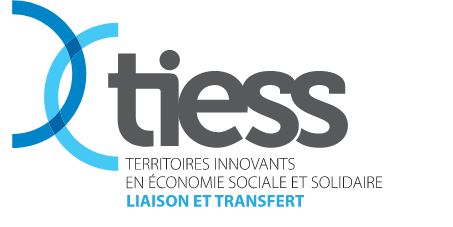In recent years, many new initiatives have been launched in Canada that have sought to make sense of impact measurement for social enterprises and other community-based organizations, and to advance new tools and common methods. In a series of blogs, we highlight collaborative projects in Quebec, Ontario and as part of a national partnership to strengthen the social enterprise 'ecosystem'.

The first blog is about a project that has been underway since 2016 that is led by TIESS (Territoires innovants en économie sociale et solidaire), which is an umbrella group in Quebec that supports the social economy through the sharing and dissemination of knowledge, practices, experience and research. The project is named Evaluation and Impact Measurement in the Social Economy (Évaluation et mesure d’impact en économie sociale).
This project looked at the state of measurement practices and evaluation with a critical eye, and has strongly advocated for measurement to be flexible and sensitive to the context, needs and capacity of individual community-based organizations. The project resulted in a web guide for understanding what evaluation and impact measurement are, how they may relate to those working in the social economy (e.g. community-based organizations such as non-profits, social enterprises, coalitions, co-operatives, etc.), and guidance on how to develop and strengthen practices that meet the needs of the organizations. It also presents excellent summaries of current methods. The TIESS Web Guide can be found here. At this time it is only available in French, though it may be translated in the near future. In the meantime (if you are not fluent in French), Google Chrome provides a translation feature for any website.
A key part of the project is the Montreal Declaration on Evaluation and Social Impact Measurement. This declaration was drafted to promote a dialogue and common vision around the opportunities and challenges in the impact measurement field. It came about in part to challenge trends in the field that emphasize standardized, uniform evaluations/impact measurement that focus on ‘results’ over process, and do not take into account the context of the organization and feasibility of measurement. In the case of the later, what is possible to measure is not always important, and what is important is not always possible to measure. Leading with measurement risks distorting the work and mission of organizations. You can read the full declaration (translated to English) here. In a nutshell, the declaration holds that evaluation has to be useful to the organization, focused around learning, and participatory. The method should be flexible and based on context. The declaration also takes a position that funders and investors should bear the cost of any requirements that they impose around impact measurement (to a grantee) and disfavours investment tools such as social impact bonds in which investment in community is based on impact measurment to repay investors.
The Demonstrating Value Resource Society is among the first signatories to the Declaration. I was also honoured to be part of their final project forum held in April in Montreal. If you are interested, videos of the panel discussions are available here
